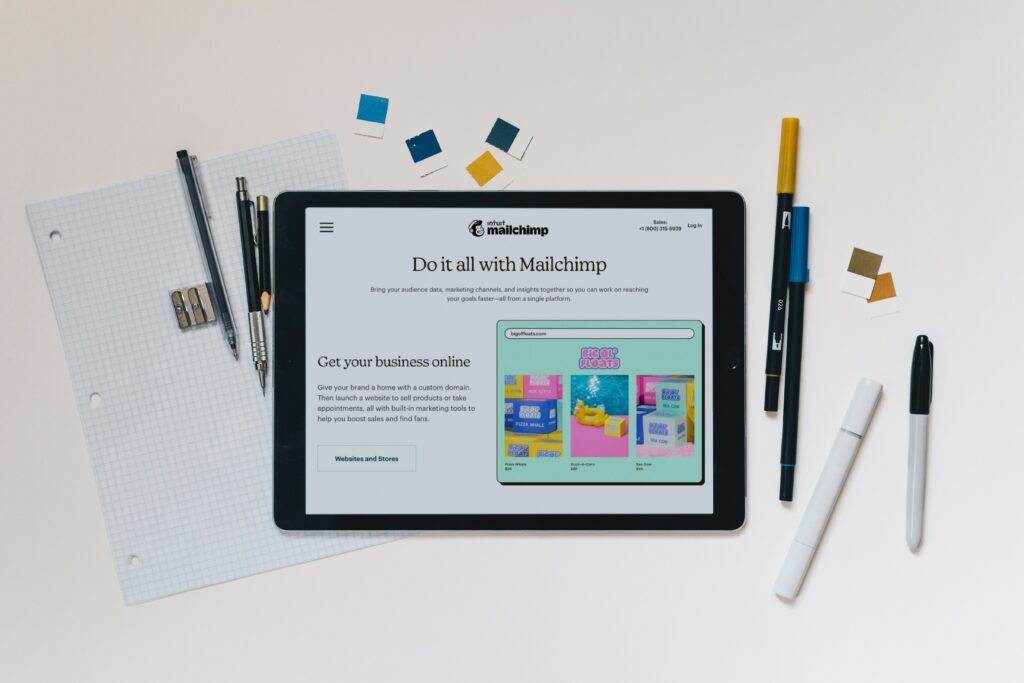

How to Start a Small Business from Home in Australia in 2023

As Seen On
Starting a small business from home can be a great way to turn your passion or hobby into a full-time career. It can also be a flexible and cost-effective way to test the waters of entrepreneurship.
If you’re considering starting a small business from home in Australia, you’re in the right place! In this article, we’ll walk you through the steps you need to take to get your home-based business off the ground.
We’ll cover everything from determining your business idea and target market to setting up your home office and establishing a marketing and sales plan.
By the end of this article, you’ll have a roadmap for how to start a small business from home in Australia. So, let’s get started!

Small Business from home
Small businesses in Australia can be operated from home, which is a popular option for many entrepreneurs and self-employed individuals.
Operating a small business from home can provide several benefits, including reduced overhead costs, greater flexibility and control, and the ability to work around personal commitments.
However, there are also some challenges to consider when running a small business from home, such as creating a dedicated workspace, managing distractions, and maintaining a professional image.
It is essential for small business owners to carefully consider the pros and cons of working from home and to develop strategies to overcome any challenges they may encounter.
Pros and Cons
There are several pros and cons to starting a small business from home. Some of the benefits include:
Pros:
- Lower overhead costs: One of the most significant advantages of starting a small business from home is that it can be much more cost-effective than setting up a traditional brick-and-mortar storefront. You’ll save money on rent, utilities, and other expenses associated with a physical storefront.
- Flexibility: Starting a small business from home can also offer flexibility regarding your schedule and work environment. You’ll be able to set your hours and work at your own pace, which can benefit those who value flexibility.
- Comfort: Working from home can be more comfortable and convenient than commuting to an office or storefront daily. You’ll be able to work in a space tailored to your needs and preferences, which can help you be more productive.
However, starting a small business from home also has some potential drawbacks, including:
Cons:
- Limited exposure: One of the challenges of starting a small business from home is that it can take more work to get exposure and attract customers. It can be harder to build a customer base when you don’t have a physical storefront or office that people can visit.
- Distractions: Working from home can also be more challenging in terms of distractions. It can be harder to focus on your work when you have household chores, pets, or family members around.
- Limited space: Depending on the size of your home, you may have limited space to set up a home office or store inventory. It can be challenging if you have a lot of equipment or products to keep.
The pros and cons of starting a small business from home will depend on your specific circumstances and needs.
It’s essential to consider the benefits and challenges before deciding and being prepared to adapt and make changes as needed.
How to Start a Small Business from Home in Australia:
Determine your business idea and target market.

Determining your business idea and target market is essential in starting a small business from home in Australia. Your business idea should be based on your strengths, interests, and what is currently in demand in the market.
It could be a product or service or a combination of both. It’s essential to spend time researching and thinking about what you want to offer, as this will help guide your decision-making and set your business up for success.
Once you have a clear idea of what you want to sell or offer, you’ll need to identify your target market. It is the specific group of people you want to sell to.
Identifying your target market will help guide your marketing and sales efforts, allowing you to tailor your messaging and marketing efforts to appeal to specific people. Consider age, gender, location, income level, and interests when determining your target market.
Your business idea and target market may evolve as you learn more about what your customers want and what works for your business. It’s okay to pivot and make changes as you go, but having a clear starting point will help you get off to a strong start.
Create a business plan:

A business plan is essential in starting a small business from home in Australia. A business plan is a written document that outlines your business goals, target market, marketing and sales strategies, and financial projections. It’s a valuable tool for helping you stay organised and focused and communicating your vision and goals to others.
Here are some key elements to include in your business plan:
- Executive summary: This is a brief overview of your business and should include a summary of your business idea, target market, and key goals.
- Company description: This section should provide more detailed information about your business, including its mission, values, and unique selling points.
- Market analysis: This section should provide an overview of the market you are targeting, including the market size, key trends, and competitors.
- Marketing and sales strategies: This section should outline how you plan to promote and sell your products or services, including any specific marketing campaigns or channels you will use.
- Financial projections: This section should include financial projections for your business, including projected income, expenses, and profitability.
Creating a business plan can take time and effort, but it’s worth the investment.
A well-crafted business plan can help you stay organised and focused and be a valuable tool for communicating your vision and goals to others. It can also help you secure funding or partnerships if needed.
Choose a Business Structure:

Choosing a business structure is important in starting a small business from home in Australia. There are several different business structures to choose from, each with its advantages and disadvantages. Some of the most common business structures in Australia include:
- Sole trader: A sole trader is a business structure in which one person owns and operates the business. It is the simplest and most common business structure for small businesses operating from home. As a sole trader, you’ll have complete control over your business, but you’ll also be personally liable for any debts or legal issues that may arise.
- Partnership: A partnership is a business structure in which two or more people own and operate the business together. Partnerships can be either general partnerships, in which all partners are equally responsible for the business, or limited partnerships, in which some partners are responsible for managing the business and others are only investors.
- Company: A company is a separate legal entity from its owners. The company is responsible for its debts and legal issues, and the owners are not personally liable. There are several different types of companies in Australia, including proprietary limited companies (Pty Ltd) and public companies.
When choosing a business structure, it’s essential to consider your circumstances and business needs. You may seek advice from an accountant or legal professional to help you make the best decision.
Register your business and obtain any necessary licenses and permits:

Registering your business and obtaining the necessary licenses and permits is important in starting a small business from home in Australia. Depending on the type of business you are beginning, you may need to take the following steps:
- Register your business name: If you are operating under a business name other than your own, you’ll need to register your business name with the Australian Securities and Investments Commission (ASIC). It will help protect your business name and prevent others from using it.
- Obtain a business license or permit: Depending on your starting business, you may need to obtain a specific license or permit. For example, if you are starting a food-related business, you may need a food handling certificate. If you are starting a business that involves working with children or vulnerable adults, you may need a Working with Children Check. It’s essential to research the specific requirements for your business and take care of any necessary licenses or permits before you start operating.
- Register for taxes: All businesses in Australia are required to register for taxes, including income tax, goods and services tax (GST), and payroll tax (if applicable). You’ll need to register for these taxes with the Australian Taxation Office (ATO) and comply with their reporting and payment requirements.
These steps are important before starting your small business from home. Failing to register your business or obtain the necessary licenses and permits could result in legal issues or fines.
Set up your home office.

If you’re starting a small business from home, you’ll need a dedicated space to work. The key is to find an area that is quiet, well-lit, and free from distractions. It could be a spare room, a corner of your living room, or even a backyard shed.
Here are some things to consider when setting up your home office:
- Location: Choose a location that is quiet and free from distractions. Find a space separate from your home’s main living areas. It will help you stay focused and avoid interruptions.
- Size: Consider the size of your home office based on the work you’ll be doing and the equipment you’ll need. You’ll want to ensure you have enough space to work comfortably and store necessary equipment or supplies.
- Equipment: Think about the equipment you’ll need for your business, including a computer, printer, and any other specialised equipment. Make sure you have enough outlets and a stable internet connection.
- Storage: You’ll need storage space for your equipment, supplies, and products you sell. Use shelves, storage bins, or filing cabinets to organise your space.
Setting up a home office can take time and effort, but it’s worth the investment. A well-organised and functional home office can help you be more productive and successful in your business.
Establish a marketing and sales plan:

Once your small business from home is up and running, you’ll need to start promoting it to attract customers. Establishing a marketing and sales plan is an important step in this process.
Here are some steps to take when developing your marketing and sales plan:
- Define your target market: Identify the specific group of people you want to sell to. Consider age, gender, location, income level, and interests when determining your target market.
- Set marketing goals: Determine what you want to achieve with your marketing efforts. Do you want to increase brand awareness, generate leads, or drive sales? Setting clear goals will help guide your marketing decisions.
- Determine your marketing budget: Consider how much you are willing and able to spend on marketing efforts. It will help you prioritise your marketing efforts and allocate your resources effectively.
- Choose marketing channels: There are many different marketing channels you can use to promote your business, including social media, email marketing, content marketing, and advertising. Consider which channels will be most effective for reaching your target market and achieving your marketing goals.
- Develop a sales strategy: Determine how you’ll sell your products or services, whether through an online store, in-person, or a combination of channels. Consider your target market’s specific needs and preferences, and tailor your sales strategy accordingly.
Developing a marketing and sales plan can take time and effort, but it’s an important step in building a successful small business from home. By planning and preparing, you’ll be better equipped to attract and retain customers and drive sales for your business.
Seek support and resources:
Starting a small business from home can be challenging, especially if you do it independently. Seeking support and resources can help you navigate the process and increase your chances of success.
Here are some ways to seek support and resources:
- Join a business network: Consider joining a local business network or association. These organisations often offer small business owners resources, training, and networking opportunities.
- Seek advice from other small business owners: Connecting with other small business owners can be valuable. Many business owners are happy to share their experiences and advise those just starting.
- Look into government grants and assistance programs: Many government grants and assistance programs are available to small businesses in Australia. These programs can provide funding, training, and other resources to help small businesses succeed.
- Hire professionals: Depending on your needs, consider hiring professionals such as an accountant, lawyer, or marketing consultant to help you with specific aspects of your business.
By seeking support and resources, you’ll be able to tap into the knowledge and expertise of others and increase your chances of success as a small business owner. Don’t be afraid to ask for help or guidance when needed – it can make a big difference in the long run.
The Bottom Line:
Starting a small business from home in Australia can be a rewarding and fulfilling experience. Planning and preparing can set you up for success and make your dream a reality.
Some critical steps to starting a small business from home include determining your business idea and target market, creating a business plan, choosing a business structure, registering your business and obtaining any necessary licenses and permits, setting up your home office, and establishing a marketing and sales plan.
It’s important to remember that starting a small business from home can be challenging, and there will likely be setbacks and challenges along the way.
However, by seeking support and resources and staying focused and determined, you’ll be able to overcome these obstacles and achieve success as a small business owner. Good luck on your entrepreneurial journey!
Casey Jones
Up until working with Casey, we had only had poor to mediocre experiences outsourcing work to agencies. Casey & the team at CJ&CO are the exception to the rule.
Communication was beyond great, his understanding of our vision was phenomenal, and instead of needing babysitting like the other agencies we worked with, he was not only completely dependable but also gave us sound suggestions on how to get better results, at the risk of us not needing him for the initial job we requested (absolute gem).
This has truly been the first time we worked with someone outside of our business that quickly grasped our vision, and that I could completely forget about and would still deliver above expectations.
I honestly can’t wait to work in many more projects together!
Disclaimer
*The information this blog provides is for general informational purposes only and is not intended as financial or professional advice. The information may not reflect current developments and may be changed or updated without notice. Any opinions expressed on this blog are the author’s own and do not necessarily reflect the views of the author’s employer or any other organization. You should not act or rely on any information contained in this blog without first seeking the advice of a professional. No representation or warranty, express or implied, is made as to the accuracy or completeness of the information contained in this blog. The author and affiliated parties assume no liability for any errors or omissions.

